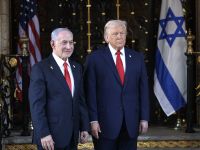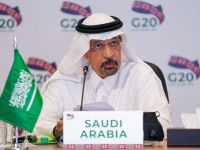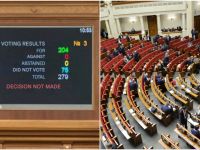US sanctions and trade-war policy may undermine the OPEC+ group’s efforts and destabilize the oil market, First Deputy Head of the Russian government office Sergei Prikhodko told reporters, commenting on Prime Minister Dmitry Medvedev’s upcoming visit to China, scheduled to take place on November 5-7.
"Unfortunately, the United States’ destructive actions on the international stage may derail the efforts that oil producers participating in this deal [the OPEC+ deal] have been making to prevent a new upsurge in prices and the destabilization of the market," he said, TASS reported.
When asked if Beijing had suggested Russia increase its oil exports to China in the wake of Washington’s sanctions against Iran, Prikhodko pointed out that Russian supplies were an important element of cooperation between the two countries.
Read More
OPEC's Crude Oil at $75.71 per Barrel
Opinion: NOPEC Could Happen
"In the first six months of the year, the amount of oil that Russia supplies to China in accordance with intergovernmental contracts grew nearly by one-third, reaching 19 mln tonnes. On the whole, Russia has become the largest oil exporter to China, leaving Saudi Arabia behind," he noted.
According to Prikhodko, Russian-Chinese cooperation in this area was "resilient to global fluctuations".
He also stated that Russia strictly abided by the agreements to stabilize the oil market, reached at the June meeting of energy ministers from countries participating in the deal between the OPEC and non-OPEC states.
"Just like some other countries participating in the agreement, Russia increased its oil production by several hundred thousand barrels per day, which has led to a decrease in prices," Prikhodko said, adding that the United States’ steps could jeopardize the implementation of the OPEC+ agreement.
In 2015, Iran and six major powers (five member states of the United Nations Security Council - Russia, the United States, France, the United Kingdom and China - and Germany) agreed on the final Joint Comprehensive Plan of Action (JCPOA), which particularly stipulated the removal of sanctions imposed on Tehran over its nuclear program.
On May 8, US President Donald Trump announced Washington’s withdrawal from the Iran nuclear deal. He said that old sanctions on Iran would be restored and new ones would be introduced in case Tehran attempted to pursue its nuclear ambitions. The first round of new US sanctions on Iran took effect on August 7, and the second one is coming into force on Monday.
In the wake of Trump’s decision, the leaders of Great Britain, Germany and France called on other participants in the deal to continue fulfilling it.








